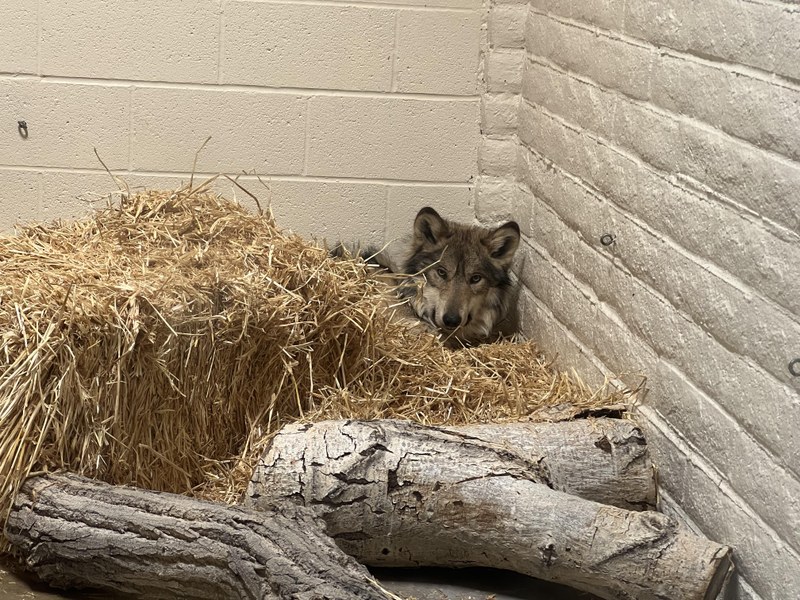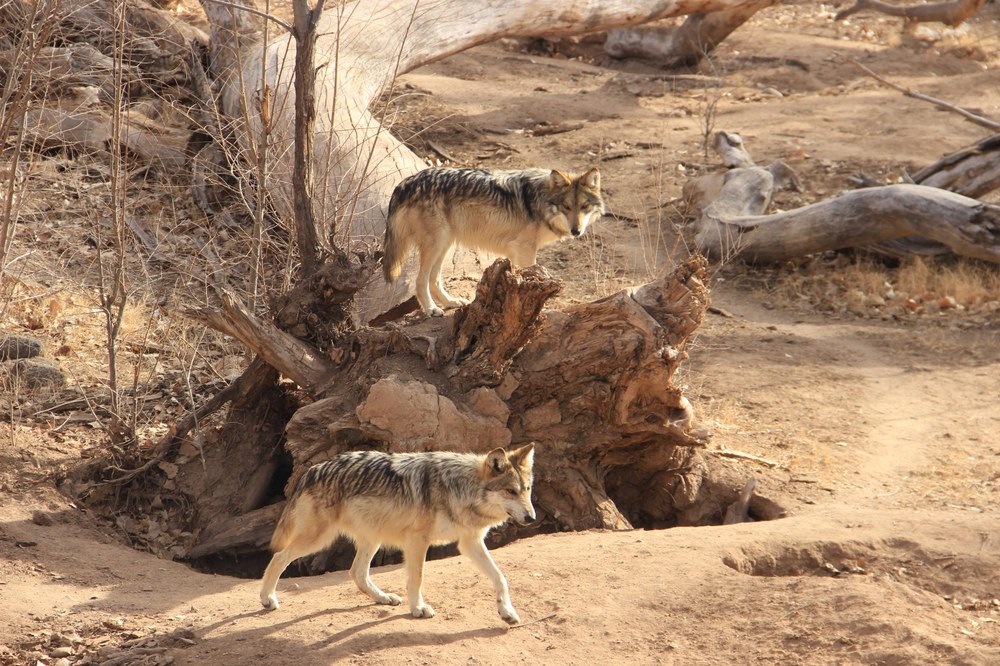
ABQ BioPark Veterinary Staff Help Famous Injured Wolf
Mexican gray wolf that gained fame after being shot was recently re-released thanks to critical treatment received at the ABQ BioPark.
Feb. 11, 2022 - An endangered Mexican gray wolf that arrived to the ABQ BioPark in late January after suffering gunshot wounds was re-released in his native habitat Wednesday thanks to the medical care he received by BioPark staff.
Mexican wolf m1888, also known as Mr. Goodbar, gained recognition under tragic circumstances after being shot in January. The male wolf arrived to the ABQ BioPark veterinary clinic on January 27 after being rescued by biologists on January 26, and an x-ray confirmed a fracture due to the gunshot wound in his right hind leg. Due to the nature of his injury, the BioPark’s veterinary staff concluded that the best option was to amputate. Surgery took place on January 28, and then he was set up in his own private backstage room to recover.
ABQ BioPark Senior Veterinarian Dr. Carol Bradford says Mr. Goodbar was likely in the wild for several weeks with his injuries before being rescued. “It’s always amazing how tough these animals are and how they can survive in the wild with an injury like this.”
Mr. Goodbar recovered quickly from his surgery, and returned to biologists with the US Fish and Wildlife Service (USFWS) on Wednesday, February 9. They released him into his native habitat the same day.
Bradford says that his prospects look good, even with a missing leg: a number of other three-legged wolves roam the wild, and have been able to hunt, survive, and even successfully mate.
This is not the first time the ABQ BioPark has cared for an injured wild wolf. Bradford says the majority of injuries she sees are due to leg traps. For example, two wolves from separate wild packs in New Mexico and Arizona came to the BioPark with trap injuries in late 2019. Both were successfully re-released into the wild following their treatment at the BioPark.
“The ABQ BioPark is honored to be able to provide care for endangered native wildlife and help not only Mr. Goodbar, but also this species, move towards recovery,” Bradford says.
Legacy of Wolf Conservation at the ABQ BioPark
In addition to treating injured wolves, the ABQ BioPark has actively participated in the USFWS Mexican Wolf Recovery Program and the Association of Zoos and Aquariums (AZA) Mexican Wolf Species Survival Plan (SSP) for decades.
The ABQ BioPark has welcomed 79 Mexican wolf pups since 1983. In 2020, Kawi and Ryder welcomed seven wolf pups, and the entire family moved to Mexico in January 2021. The move was part of the recovery program, and the goal was for an eventual wild release for the pack.
And in November 2021, the ABQ BioPark welcomed four littermates from Sevilleta National Wildlife Refuge. Staff say the crew, which consists of two males and two females born in May 2020, is acclimating well to its new environment. Currently, the two males, Bard and Warlock, are on exhibit with Archer while the two females, Rogue and Druid, are together in a behind-the-scenes space.

Male wolves in their habitat at the ABQ BioPark Zoo, February 2022.
